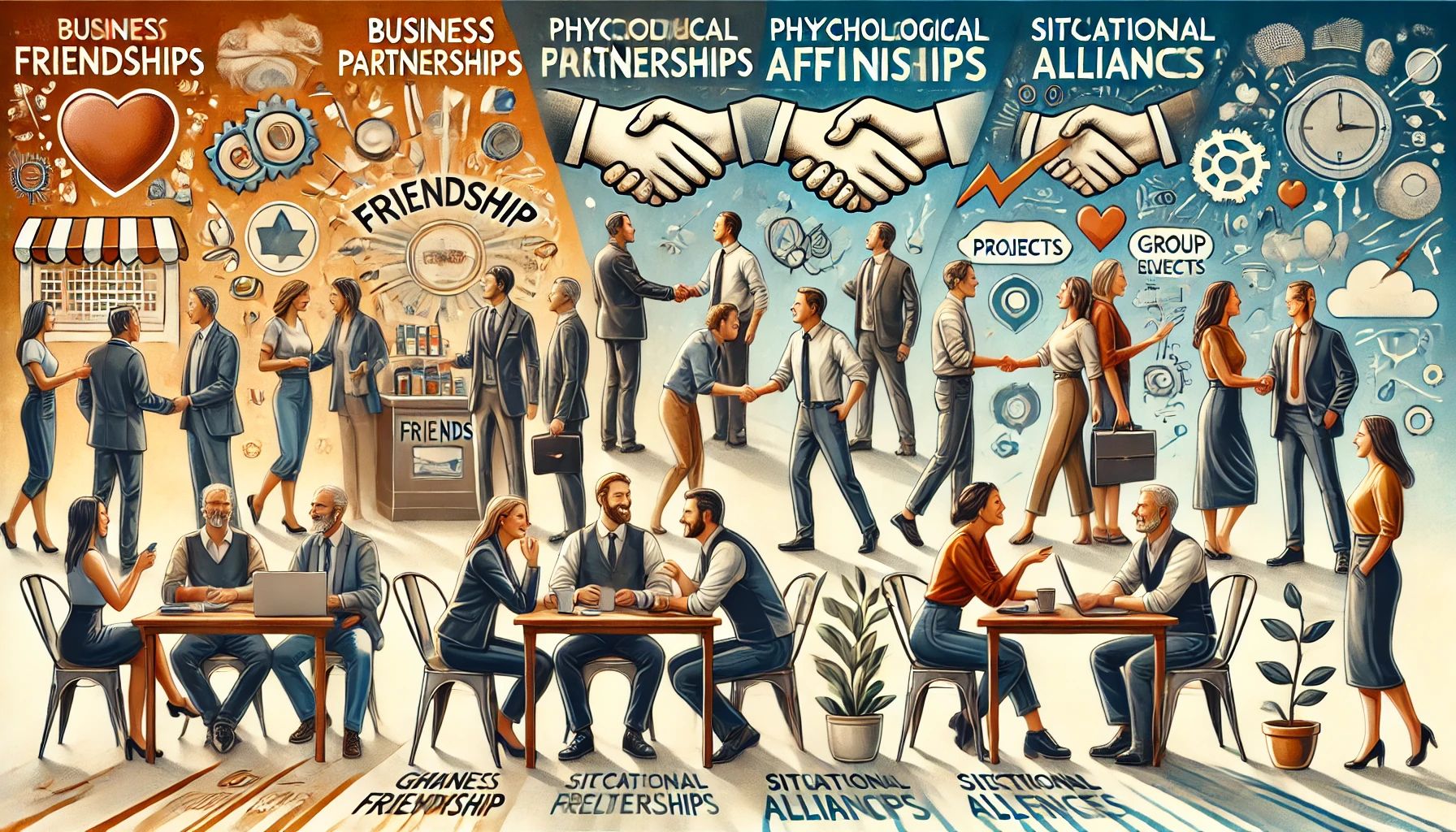
In Ancient Greece, business relationships were viewed not as friendships but as alliances forged for mutual success. Even in politics, friendships among politicians often served as a means to achieve greater influence. In today's world, amidst the complexities of business and the significant impact it has on people's lives, many question whether true friendship can coexist within a business partnership. The saying goes, "If you want to lose a friend, go into business with them." Even working in the same department can reveal the pitfalls of human psychology, potentially wrecking the ship of hopeful friendship. Personally, I prefer to reserve the term "friend" for those with whom I share a deep understanding: "I have a good rapport with my business partner" suffices. A person may be a companion, a colleague, or a business partner, but not necessarily a friend.
Friendship - Companionship
This type of friendship revolves around shared activities or common interests. It could include classmates, neighbors, department colleagues, club members, or hobby enthusiasts. People naturally gravitate towards those with whom they feel comfortable spending time. Such friendships often dissolve after school ends, a move happens, or interests change. The hallmark of this type of friendship is its ease—these buddies typically don't cause trouble. If conflicts arise, people tend to replace these friends rather than work through issues.
Friendship - Psychological Affinity
This friendship thrives on psychological harmony—where people connect effortlessly due to shared values, life perspectives, interests, and temperaments. They understand each other deeply and find comfort in their shared journey. According to E. Berne, it's about avoiding manipulative games and enjoying genuine connection. However, this kind of friendship isn't guaranteed to last forever; as people evolve, their compatibility may change, requiring ongoing effort to sustain or signaling the natural end of the friendship.
Friendship - Situational
This friendship arises from practical needs or circumstances. For instance, befriending a senior manager to secure favor at work or forming alliances with other parents for their children's benefit. These friendships tend to dissolve once the situational context changes or the shared purpose disappears.
Friendship - Cooperative
In this type of friendship, both parties derive social, psychological, moral, or even material benefits from each other. While unwritten, the terms of this friendship are understood and upheld akin to an unspoken contract. Unlike business partnerships, which rely on formal agreements, this type of friendship operates on mutual trust and shared expectations. It's like knowing that two plus two equals four without needing to verify it every time—it's just understood. Friends in such relationships support each other willingly, knowing their efforts will be reciprocated.
Noble (True) Friendship
Aristotle distinguished this rare form of friendship from others—it's unconditional and enduring, transcending circumstances, personalities, and even disagreements. True friendship, like maternal love, is unconditional and not granted to everyone. It doesn't hinge on shared interests or reciprocal favors but on a profound bond of trust, respect, and mutual support. As Francis Bacon aptly put it, "True friendship multiplies joy and divides sorrow."
Friendship, whether tested by distance, time, adversity, or changing circumstances, remains steadfast. It doesn't demand conformity or compromise personal values but embraces diversity and forgives mistakes. True friendship, ultimately, is a sanctuary—a place where one finds unconditional support and security, regardless of life's challenges.


